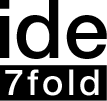1984 li te marinelli
-------------------------------------------------------------------------------------
David Marinelli:
Christian Ide Hintze: The Man Who Makes Poetry In Public Park
Coming out of the subway passage on Karlsplatz in the direction of Resselpark the initial impression is one of puzzled amazement: 3-meter high dark brown letters spelling L I T E with centres of flickering TV sets. To one side a huge x-shaped structure with monitors at each end, and behind it all a wooden shack with three more televisions, these glimmering black and white. Believe it or not, you have stumbled on to a three week (September 15 – October 5) pilot project, a "Poetry Settlement" whose realization pays tribute to one Christian Ide Hintze, poet by vocation and video artist by necessity, who took nine month' hard work and a single idea to bring this dream to fruition.
He tells stories of the "172 telephone calls, 62 letters, 34 appointments with 22 different offices" necessary to organize the whole business. "I'll never forget a Hofrat in Schönbrunn who kept telling me in his Habsburg German why I simply couldn't do something like this on Heldenplatz (the first choice for Gedichtansiedlung)." The relatively simple part of the task was a financial backer. Hintze, who claims to have a deep-seated mistrust of the cultural subsidy establishment in Austria, went in search of a sponsor among the various companies involved in video equipment. One of the last doors he knocked on, Grundig Austria, was one where he expected rejection similar to a dozen previous ones. The result was an almost immediate interest in the project und support worth about 500.000.- ÖS.
The final step, finding a suitable location, was the real test of CIH's powers of endurance. Enormous amounts of time and energy were spent simply finding out who had the jurisdiction over a certain square and how to get in touch with the office involved. Finally, says Hintze, his plans were saved by the intervention of Erhard Busek and Helmut Zilk, "two politicians I really have only good things to say about. They were helpful from the start in cutting through the party-political barriers between me and getting the "Poetry Settlement" a home. To be sure, that bit of asphalt in Resselpark is costing 10.500 ÖS (= 1.000 US-Dollars) to rent for three weeks, but the organizational battle has been won.
"Energy for the future"
Christian's beginnings over a decade ago would hardly suggest such a grandiose public metaphor for the isolation-involvement of a present-day poet in Vienna. He began handing out poems and short prose on the streets of this city in 1973 with such single-mindedness that when he finally gave it up six years and over a million slips of paper later he needed an almost equally long period to recover from the day-to-day close contact with people. "The resistance, aggression, routine became too much for me, though I developed a thick skin, which is essential for what I'm doing now." Since then Hintze has made sporadic though memorable appearances on ORF TV, including the (in)famous Nina Hagen "Club 2" of fours years ago where he demonstrated a talent for aggravating representatives of the official cultural establishment out of their usual equanimity.
In the last few years he has been intensely involved in the art video sector ("I consider my work a continuation of local video tradition which has been surprizingly vital since the '50s"), whose VIDEOTORTOUR – 19 literary videos – ran in Café Ring for two months, until September 20. The "Gedichtansiedlung" is a point of arrival in an attempt to extend the concept of literature (hence the huge letters LITE) beyond the written word, to give passers-by the opportunity to view the poet at work in his creative ghetto via three b/ws, while an additional 8 colour monitors play literary videos; tape poetry is counterpoint to an attempt at the creative process captured live on the flickering screen.
Is the prospect of living in a small shack with a pile of video equipment, table, typewriter, chair, bed and no natural light (a TV lamp) except for meals and physical needs for three weeks frightening? "I doubt it. I've often thought that being in prison would be an ideal situation. No distractions to take attention off writing." He wonders about the noise level outside on the busy square, possible vandalism, outbreaks of aggression he knows from earlier experiences as street poet. Will he be able to finish his book observed by TV monitors? Does his "snail's shell" represent the place of the artist in society, or is it an attempt to break out of it? Will he be able to harness the enormous "energy for the futre" (Zukunftsenergie) which he claims to feel in Vienna?
What is going on in Resselpark until October 5 is a one-man show in the most literal sense of the term. Have a look and see.
(Danube Weekly, Austria's only english newspaper, Vienna, Sept. 18, 1984)
